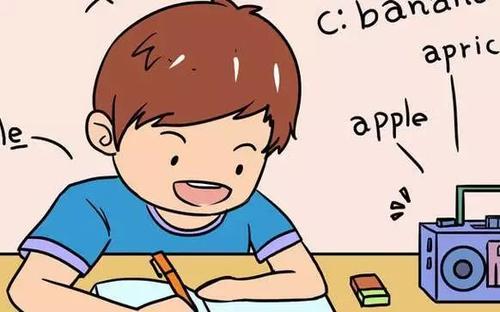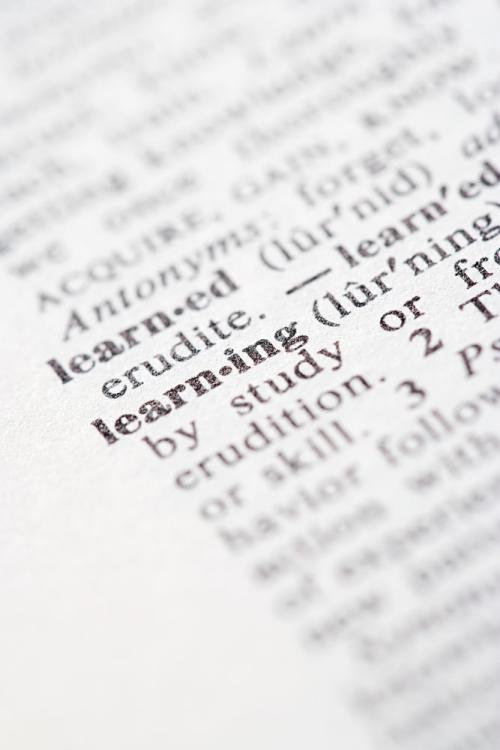无所不能的人实在一无所能,无所不专的专家实在是一无所专……下面是课件范文网小编为您推荐高三英语语法关键知识点归纳三篇。

高三英语语法知识点归纳1
一、一般过去将来时
1.概念:立足于过去某一时刻,从过去看将来,常用于宾语从句中。
2.时间状语:The next day (morning, year…),the following month(week…),etc.
3.基本结构:主语
+was/were +going to + do+其它;主语+would/should + do+其它
4.否定形式:主语+was/were+not + going to + do; 主语+would/should + not + do.
5.一般疑问句:was或were放于句首;would/should 提到句首。
6.例句:He said he would go to Beijing the next day.他说他第二天要去北京。
I asked who was going there.我问,谁要去那里。
二、 现在进行时
1.概念:表示现阶段或说话时正在进行的动作及行为。
2.时间状语:Now, at this time, days, etc. look. listen
3.基本结构:主语+be +doing +其它
4.否定形式:主语+be +not +doing+其它
5.一般疑问句:把be动词放于句首。
6.例句:How are you feeling today?你今天感觉如何?
He is doing well in his lessons.在课上他表现得很好。
高三英语语法知识点归纳2
一、非谓语动词
“非谓语动词”可分为动词不定式、动名词和分词.它在句子中的作用很多:除了不作谓语外,它可以充当主语、宾语、表语、定语、状语与复合宾语(主语补语或宾语补语).有些及物动词后面接不带to的不定式作复合宾语.这些动词归纳如下:一感(feel).二听(hear,listen to),三让(have,1et, make),四看(see,watCh,notice,observe).再加上help somebody(to)do something和美国英语look at somebody do somthing.还有“二让”属特殊:get somebody to do something 与keep somebody doing.而有些及物动词后面接动名词(the -ing form)作宾语.这些动词归纳为一句话:Papa C makes friends.这是由如下动词的开头字母组成:permit,advise, practise,avoid,consider,mind, allow,keep,enjoy,suggest, finish,risk,imagine,escape,need,delay,stand(忍受). 为了容易记住,也可以编成顺口溜:“允许完成练习,建议避免冒险,考虑延期逃跑,喜欢保持想象,需要反对忍受”.其相对应的动词依次是:permit/allow,finish,practise;
advise/suggest, avoid,risk: consider, delay, escape/miss; enjoy/appreciate, keep, imagine; need/want/require,mind. can't help/can’t stand.
二、复合句
1、学生最容易混淆的是定语从句与同位语从句的区别.
例如:A、The news that our team has won the match is true. (同位语从句)
B、The news that he told us surprised everybody here. (定语从句)
关键的区别在于连接或关系代词that:有意义的是定语, 无意义的是同位.因为引导定语从句的that在从句中作主语或 宾语,而引导同位语从句的that只起到连接词的作用.
2、接着容易混淆的是引导定语从句的关系代词that与 which:that之前是不定(代词)、序数(词)、(形容词)级:which之前是介词短语与逗号(非限制性).
例如:A、All that we have to do is to practise every day.
B、The first lesson that I learned will never be forgotten.
C、I have lost my pen,which I like very much.
D、The house in front of which there is a garden is my home.
三、It的用法
1、It除了代替人和物以外,还可以作形式主语.而真正的主语(不定式、动名词或从句)则放于谓语或表语之后.
例如:It is nor easy to finish the work in two days.
然而有少数表语之后接动名词作真正的主语.这些表语是:无助(no help)、无用(no use)、没好处(no good);工作(hard work)、费时(a waste of time)、又危险(a danger).
例如:A、It is no use crying over spilt milk.
B、It is a waste of time waiting for him.
2、It还可以作形式宾语.通常下列动词后面可接it作形式宾语:2f2tcjm(find,feel,think,take,consider,judge, make).
例如:A、He made it clear that he was not interested in this subject.
B、I think it no use arguing with him.
3、It用于强调句式.要强调句子的某一部分(主语、宾语、 状语),可以把it当作先行词.这种句子的结构是:It is(was)+ 被强调部分+that(who)+句子的其余部分.
例如:A、It iS Professor Lin who teaches us English—(强调主语)
B、It was in Shanghai that l saw the film.—(强调状语)
C、It was in 1990 that I worked in the factory.(同上)
但要注意与定语从句的区别.
例如:D、It was 1990 when I worked in the factory.(定语从句)
在强调句式里,我们把强调结构It is(was)…that除去,句子还很完整.如例句C.而例句D就不能.
四、倒装结构
学生容易混淆的是全部倒装与部分倒装.如何区分之,编个顺口溜:副(adv.)介(prep.)提前全倒装,其它句式部分倒;否定提前倒助动,让步状语倒表语;复合句式倒主句,不
倒装的属特殊.下面举例说明:
A、Here comes the bus.(副词提前,全倒装)
B、Here he comes.(代词作主语,不倒装)
C、In front of the house lies a garden.(介词短语提前,全倒装)
D、Never shall I do this again.(否定词提前,部分倒装)
E、Young as he is ,he knows a lot.(让步状语从句,表语倒装)
F、Only when he told me did I realize what trouble he was in.(only 修饰状语,主句倒装)
G、Only he can save the patient.(only修饰主语.不倒装)
H、Not only will help be given to people,but also medical treatment will be provided.(否定词提前,部分倒装)
I、Not only he but also we like sports.(连接两个主语,不倒装)
五、虚拟语气
虚拟语气也是一个难点.所谓虚拟语气是表示说话人的愿望、假设、猜测或建议,而不表示客观存在的事实.它通过句子的谓语动词的特殊形式来表示.现归纳如下:纯假设,用虚拟,动词时态退一级:条件句,分主从,主句谓语前加would (should,could,might);表愿望,用虚拟,wish后面接宾语(从句):现在过去与将来,动词时态退一级:提建议,用虚拟,宾语(从句)动词用(should)do:俩建议,三要求,再加坚持与命令(suggest,advise,demand,require,request,insist,order):It is time和eoukd rather,后接丛句用虚拟:部分主语从句中, 谓语用虚拟结构 (It is necessry /important/natural/natural/strange/strange that……should do). 下面举例说明:
A、If you came tomorrow,we would have the metting. (条件句虚拟)
B、Without air,there would be no living things.(同上)
C、We wish we had arrived there two hours earlier.(表示愿望虚拟)
D、He demanded that we (should)start right away.(表示建议虚拟)
E、It is(high)time that we left (should leave)now.(特殊从句虚拟)
F、I would rather you gave me the book.(同上)
G、It is necessary that we should clean the room everyday,(主语从句虚拟)
H、He speaks English so fluently as if he were English. (特殊从句虚拟)
高三英语语法知识点归纳3
1. opccupation n. 居住、占用;职业
occupational adj 与职业有关的
occupier n. 居住者, 房客, 占领者
occupy vt. 占, 占用, 占领, 占据
2.Reporter n. 记者, 新闻通讯员
=journalist n. 新闻记者, 从事新闻杂志业的人
3.Profession n. 职业, 专业,
professional adj. 专业的、职业的/ n.专业人员
习惯用语:allied health professional 保健辅助人员
4.Photograph n. 照片/ vt. 给......照相
Photographer n. 摄影师
5. Eager adj. 渴望的;热切的
eagerness n. 热心
6. concentrate v. 集中;聚集
concentration n. 集中;集合
concentration camp n. 集中营
concentrate on 集中;全神贯注于
例句:1)How can you concentrate on your work with so much noise going on?
你怎能在这样吵的环境下集中精神工作呢?
2)I tried to concentrate my thoughts on the probkem.
我努力让自己的思绪集中在这个问题上面。
=Attentively 注意地, 留意地
= pay attention to 注意
7.Course n. 过程, 经过, 进程, 方针, 路线, 跑道, 课程, 一道菜
a course in/on sth 课程
a course of sth 疗程
8.Acquire vt. 获得;取得;学到
acquisition n. 获得;获得物
9.Meanwhile n. 其间, 其时=meantime10. accuse vt. 控告, 谴责,
accuse ... of ... 因某事指责或控告某人
例句:1)I accused her of cheating. 我指责她作弊。
2)He was accused of murder and sent for trial. 他被控告谋杀并已送交审判。
Accusation n. 指责;控告;谴责
11. deliberately adv. 故意地
= on purpose
12. so as to(do sth) 为了做某事/以便作某事
=in order to do sth
例句:We went early so as to get good seats. 我们提早去了,以便占到好位置。
13. bribe vt. 向...行贿/n. 贿赂
bribery n. 行贿, 受贿, 贿赂
14. guilty adj. 犯罪的, 有罪的, 心虚的
guilt n. 罪行, 内疚
15.imaginative adj. 想象的, 虚构的
image n. 图象, 肖像, 偶像, 形象化的比喻, 极为相象, 映像, 典型
imagine vt. 想象, 设想
16. technical adj. 技术的, 技术上的, 技巧方面的
technic n. 技术, 手法
technica n. 技术性细节,技术,技巧,技能
technically adv. 技术上, 学术上, 工艺上
17. defend vt. 防护, 辩护, 防卫,
defence n. 防卫, 防卫设备
defend against防卫...以免于
18. crime n. 犯罪, 犯罪行为, 罪行, 罪恶
criminal n. 罪犯, 犯罪者/adj. 犯罪的, 犯法的, 罪恶的
criminally adv. 刑法上, 犯了罪地
19. edition n. 版本, 版
edit vt. 编辑, 校订, 剪辑/n. 编辑工作
editor n. 编辑, 编辑器, 编者
20.employ vt. 雇用, 用, 使用
employer n. 雇主, 老板
employee n. 职工, 雇员, 店员
employment n. 雇用, 使用, 利用, 工作, 职业
21. polish vt. 擦亮, 发亮, 磨光, 推敲
Polish adj. 波兰(Poland)的
22.chief n. 首领, 领袖, 酋长, 长官,/adj. 主要的, 首要的, 首席的, 主任的
Chief Executive Officer 执行总裁,首席执行官
23. intention n. 意图, 目的
intent n. 意图, 目的, 意向/adj. 专心的, 决心的, 热心的
intentional adj. 有意图的, 故意的



